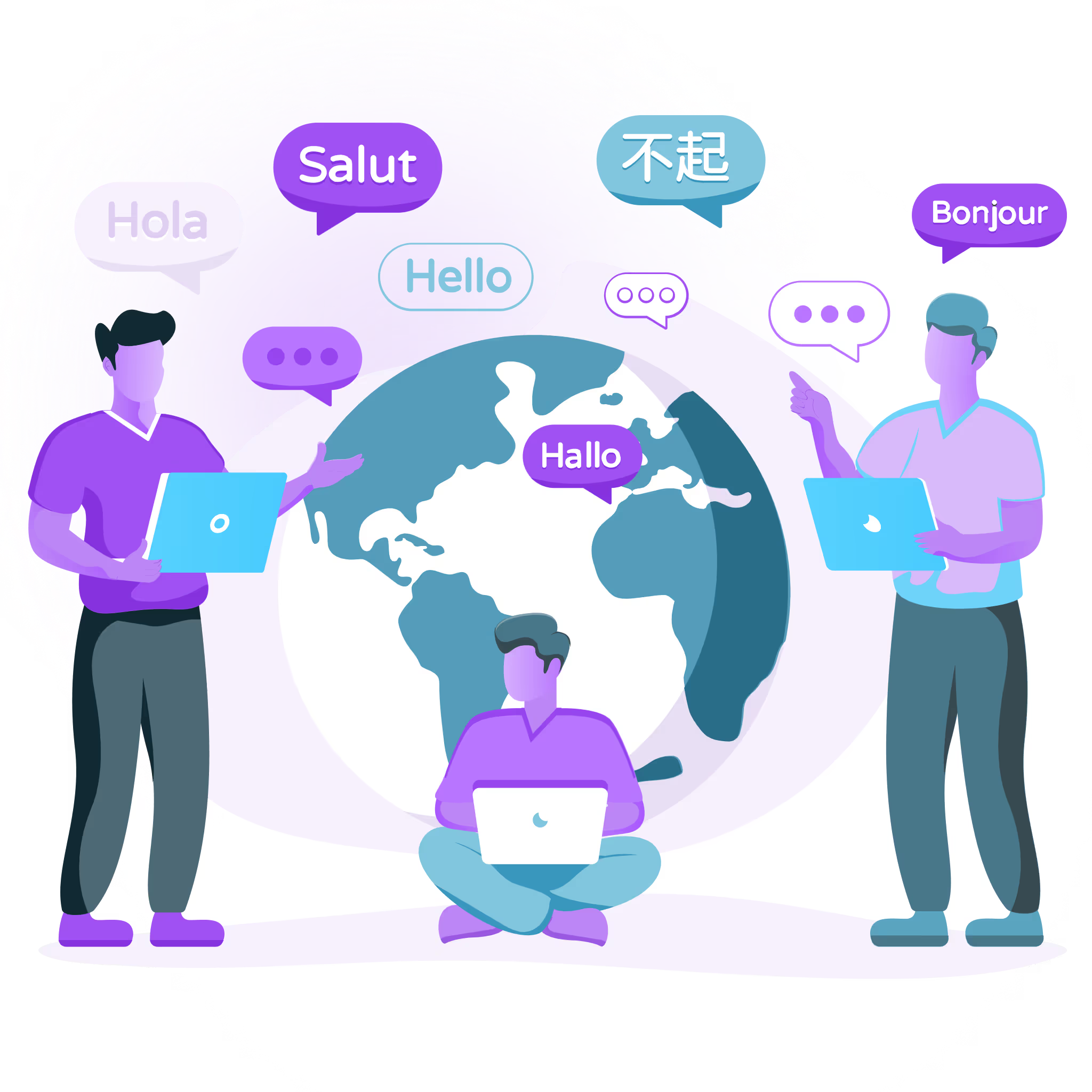If you think your English-only website is enough, you might want to think again.
The reality is that 4 out of 5 people worldwide don't speak English fluently. If your website isn't multilingual, you're turning away potential customers without even realizing it.

This guide breaks down the top reasons to translate your website and web apps–starting today.
Top 10 Reasons to Start Website Translation Now
Let's explore how expanding your brand’s multilingual resources can help your business.
1. Unlock Sales: Customers Can't Buy What They Can't Read

In the CSA’s report on consumer language preferences, “Can't Read, Won’t Buy,” researchers found that most people prefer to access information, make online purchases, and get tech support in their own language. In short, if they can’t read about something online, they won’t buy it.
If you sell something people want or need but don’t offer it in their language, you’re less likely to get their business. Approximately 75% of customers will drop out at some point along the customer journey.
2. Stay Relevant: English Web Usage is Dropping

English has long been the unofficial "default" language on the Internet, but times are changing. For the first time in Internet history, English usage online dropped by 14% between 2022 and 2025.
With most of the global population not reading or speaking English, a vast and underserved market awaits—internationally and within the US.
Given that America is one of the most linguistically diverse countries in the world, the need for more translated business websites is stronger than ever at home and abroad.
3. Stand Out: Translations Elevate You Above Competitors
If your competitors are already serving online customers in their preferred language, it's crucial to translate your website to stay relevant.
Globalization has given customers more choices than ever before, and they now expect highly personalized experiences in their preferred languages. Without localized, culturally relevant digital content, consumers are far more likely to choose your competitors' offerings.
Translating your website and offering multilingual content can give you a competitive edge. You can also enter new markets ahead of your rivals and set the quality and customer service standards they will need to meet.
4. Follow the Data: Identify the Need for Language Support
Take a look at your website analytics. The data can uncover audiences that truly need multilingual websites.
Where is your traffic coming from? Are your visitors from other countries? Are they spending time exploring your site or exiting quickly? How many of them are buying from you? Are they able to make purchases?
If your data shows unexpected overseas interest in your brand or even many bounces from Spanish readers, translation can help you increase momentum as you grow.
5. Boost Traffic & Revenue: Benefit from Translated Websites
According to DeepL research, 96% of B2B leaders reported a positive ROI from localization and translation efforts, with 65% seeing at least a threefold return.
Translating your website attracts new audiences, grows traffic, and increases conversions. It also allows new leads to fill out forms, download content, and contact sales reps.
If you’re still not convinced that translation is necessary, think about it this way. If a customer can’t find your site in their native language, chances are that they’ll never find you.
6. Pave the Way for Global Growth: Translation as a Foundation
With translation, your business will accelerate by providing localized information to support your international customers. Your company's website will also attract more consumers when they can read product descriptions, understand payment methods, and navigate trial or account setup options in their own language.
Your reputation may be good enough to precede a marketing campaign. Perhaps your product or service took off unexpectedly in a foreign market you had not explicitly targeted. Why not take this opportunity to expand your target audience?
7. Expand Brand Awareness: More Languages, Greater Reach
Translating your website is a fantastic way to increase brand recognition at home and worldwide. Talking to your customers in their own language increases trust and brand awareness.
International customers engage with content that fits their linguistic and cultural nuances. Free tools like ChatGPT often miss these nuances or provide inaccurate information, so professional translation can be a good option, depending on your use case.
8. Enhance SEO: Multilingual Content Drives Results
Your website is more than a platform for customers to engage with your brand. It's also an essential part of SEO strategy. You gain SEO benefits from everything you publish, which boosts your position on search engines and organic traffic. You can increase these benefits with multilingual websites.
In your marketing strategy, consider the importance of multilingual SEO. Translated content has SEO-optimized keywords that help new visitors discover your brand.
9. Stay Compliant: Meet International Legal Requirements
Translating your website is more than just a best practice. In some industries and markets, regulations and laws require localized content. These laws apply to Europe, Canada (Quebec), and the US.
Failure to comply with these regulations can result in legal penalties and steep fines, as high as $90,000 per violation. To stay compliant with international laws, you should translate your website and important pages, such as your privacy policy and terms of service.
10. Affordable & Accessible: Translation Has Never Been Easier
Website localization tools have made translation more accessible and cost-effective than ever. Advanced AI and NLP technologies deliver high-quality, automated translations that capture language nuances, while TMS tools streamline workflows for businesses of all sizes.
An Amazon Web Services (AWS) case study found that AI-powered translation can dramatically cut costs. 123RF, a leading provider of royalty-free digital content, reduced translation expenses by 95%.
Beyond cost savings, these advancements enhance accuracy and speed, enabling businesses to deliver seamless, localized experiences—expanding reach and strengthening customer relationships.
Kickstart Your Website Translation with Localize
In today’s global economy, customers have more choices than ever before. Most people expect a personalized online experience in their language.
“In 2025, an English-only website is leaving money on the table.”
-Brandon Paton, CEO of Localize
Website translation should never be an afterthought. Localization is a key part of your content strategy and growth planning. From translated websites to mobile apps and documents, we can help you achieve all your localization goals.
Set up a consultation with Localize to learn how a translation management system (TMS) can help you reach new markets quickly and efficiently.











